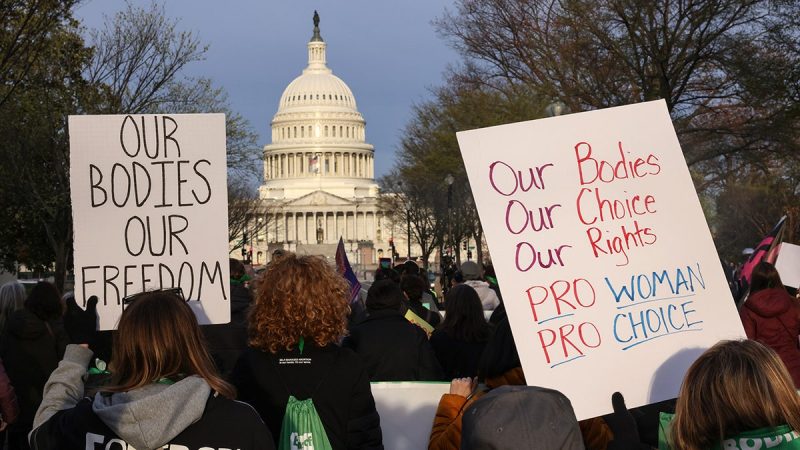Tens of thousands rally in massive anti-corruption protest against Serbian government
Pro-life groups assail FDA for ‘reckless disregard’ in Supreme Court abortion pill case


Pro-life leaders are accusing the Food and Drug Administration (FDA) of operating with a ‘reckless disregard for women’s health and safety’ over the agency’s handling of a controversial abortion pill that’s now at the center of a high-stakes high court case.
The U.S. Supreme Court on Tuesday heard arguments in a case that could curb nationwide access to abortion pills such as mifepristone — the drug that’s drawn the ire of the pro-life community, including March for Life President Jeanne Mancini.
‘The FDA’s removal of nearly all safeguards around the dangerous abortion drug mifepristone has needlessly put women and girls at risk for suffering severe — even life-threatening — complications without the ongoing care of a medical provider,’ Mancini said. ‘We hope the FDA will be held accountable for failing to meet its own standards when it comes to abortion drugs. Such reckless disregard for women’s health and safety is unacceptable from an agency tasked with protecting it.’
The case, FDA v. Alliance for Hippocratic Medicine, centers around mifepristone. Approved by the FDA in 2000, the medication is used alongside another drug to end a pregnancy as early as 10 weeks gestation.
The FDA took strides in 2021 — the year before the Supreme Court’s June 2022 ruling that overturned Roe v. Wade — to make mifepristone more accessible, including by removing the requirement for patients to see a doctor in person to get a prescription.
But months after the Supreme Court’s landmark summer decision, a federal appeals court in Texas ruled the FDA’s policy change was illegal, as was an earlier update that extended the pill’s recommended usage by several weeks. The high court is now reviewing that decision.
‘Bowing to pressure from the abortion industry, the FDA loosened the safety requirements of mifepristone which still has a black box warning,’ National Right to Life President Carol Tobias said. ‘Drugs that come with black box warnings have the most dangerous side effects and safety concerns, yet the FDA is okay with mifepristone being prescribed and even mailed to women without an in-person exam.’
SBA Pro-Life America President Marjorie Dannenfelser told Fox News Digital that she ‘was proud to stand with women harmed by abortion drugs courageously sharing their stories, and with the doctors caring for them, in contrast to the abortion industry that leaves women to suffer alone.’
‘Today we are standing up to say women’s health matters and the FDA must do its job. We urge the Supreme Court to uphold safeguards for women and girls,’ she said.
Erik Baptist, senior counsel of Alliance Defending Freedom, said that pro-life groups are ‘simply asking the Court to reinstate the original standards that were in effect for over 15 years.’
Meanwhile, pro-choice groups are maintaining that mifepristone is a safe and critical drug in the post-Roe landscape of reproductive health.
‘Decades of research and clinical experience have demonstrated that mifepristone is extraordinarily safe and effective, including when dispensed by pharmacies or through the mail,’ Rabia Muqaddam, senior staff attorney at the Center for Reproductive Rights, told Fox News Digital. ‘There is no legitimate science disputing this research. Instead, the plaintiffs in the case rely on widely discredited and even retracted research articles and the say-so of anti-abortion zealots.’
Muqaddam added: ‘If the Supreme Court sides with the plaintiffs and their junk science over the FDA and decades of high-quality research, countless people will suffer as will the ability of Americans to access important drug innovations.’
Planned Parenthood President Alexis McGill Johnson cast the case as a ‘threat’ to women’s rights — and more.
‘Beyond the threat to our fundamental rights, the very existence of this case puts every other FDA-approved medication at risk of being taken off the market or restricted for political reasons,’ Johnson said. ‘That is reason enough to be clear about how serious this case is for the future of sexual and reproductive health care and everything beyond.’











